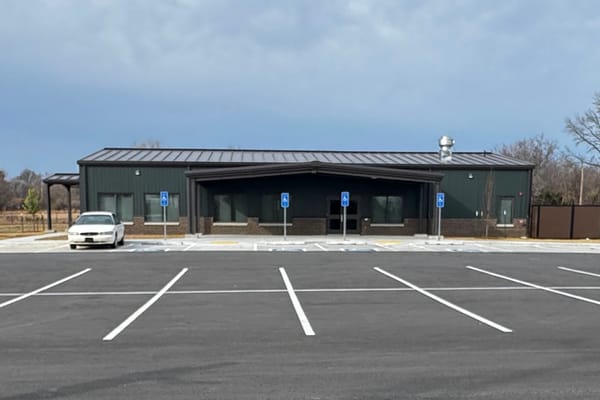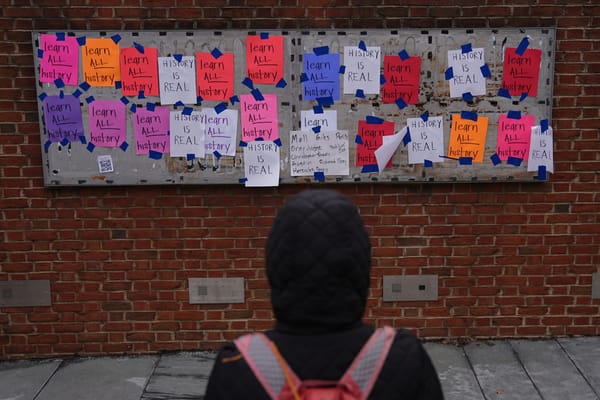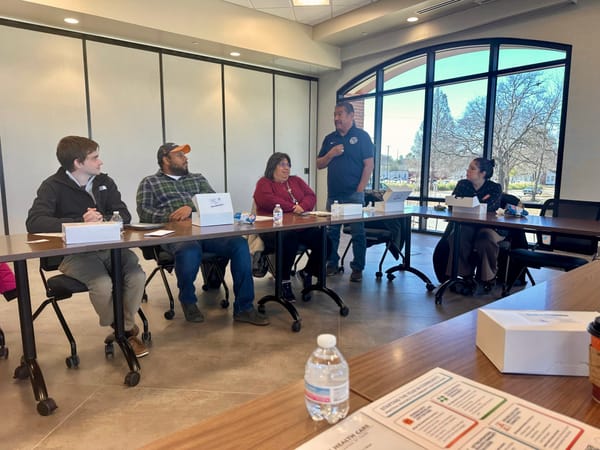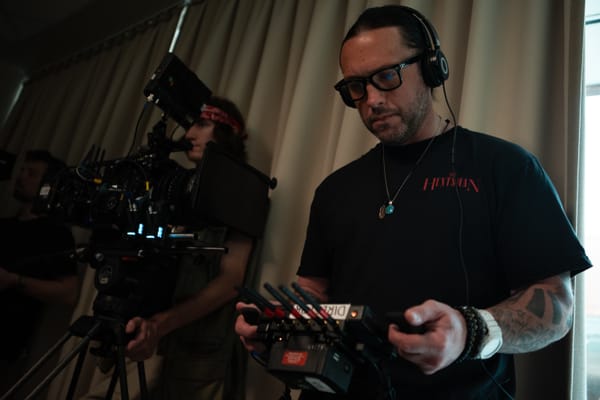From crime to cutting red tape, new Interior Secretary vows to work with Indian Country
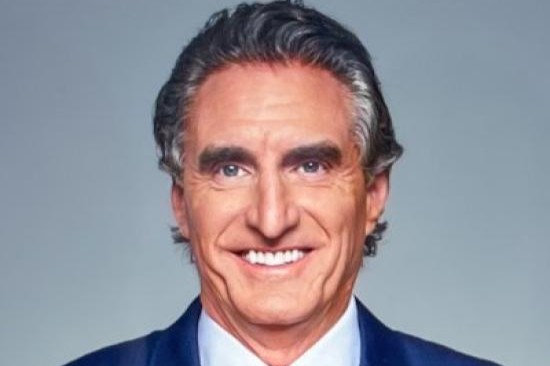
Doug Burgum believes maintaining strong relationships with tribal nations is important along with addressing the Missing and Murdered Indigenous Women (MMIW) crisis. He also spoke to tribal leaders after a memo that froze federal funding-a move that would have disproportionately affected Indian Country.
(NATIONAL) Doug Burgum, the former Governor of North Dakota, was confirmed as the new Secretary of the Interior for the Trump administration on January 30th. He vowed to make energy production a priority and said he respects tribal sovereignty and that the issue of missing and murdered Indigenous people is a tragedy.
Burgum responded saying, “It seems that… we lose a college student at Spring Break-it's a Netflix series, and the whole nation knows her name personally.”
“Then we have the same individual tragedies that happen over and over again in Indian country, and people aren't even aware that it's going on-so we've got to change our entire approach,” he said.
Burgum’s hearing lasted nearly three hours. He was grilled by Democratic Senators Ruben Gallego of Arizona, Senator Hirono of Hawaii and Senator Cortez-Masto of Nevada, all Democratic members of the Energy and Natural Resource Committee on everything from tribal affairs to water usage in the Colorado Basin.
Arizona Democratic Senator Ruben Gallego asked Burgum about the lack of tribal law enforcement.
“I’ve worked through my time in Congress to try and increase the funding for tribal law enforcement but our federal budget cuts really put all that work at risk,” Gallego said.
“What is your plan to work collaboratively with Congress and tribes across the country on tribal law enforcement?”
The Interior Department oversees the Bureau of Indian Affairs- which oversees the trust relationship between the federal government and tribal nations. It’s one of the oldest government institutions-founded in 1849
The Interior Department is also responsible for managing Public Lands, energy production and natural resources, as well as National Parks.
While much of the hearing was devoted to the discussion of laws and policies related to energy production, public lands and the antiquities act, tribal nations and the Department’s policies were also batted around.
Washington State Democratic Senator Maria Cantwell asked Burgum, “On tribal sovereignty, you believe in Tribal Sovereignty, you believe in tribal consultation, which doesn’t mean you just pick up the phone and have one conversation. Tribal Consultation means that when the federal government says so much money has to go to tribes that you actually figure out the plan for that to happen.”
Burgum responded saying, “Tribal consultation to me as Governor of North Dakota has meant actually spending time and going to the tribes, listening, sometimes listening for hours to understand what the issues are and in getting to people ahead of time and then working on things that are important.”
Burgum also talked about law enforcement for tribal lands when responding to Cantwell.
“We achieved MOU’s on law enforcement. I mean some of the scarcest and most devastating law enforcement in this country right now is the lack of BIA agents on federal land. Some of the tribal reservations have become harbors for criminal organizations because they know that we don’t have enough resources there and then our local county sheriffs, the state, in many cases didn’t have jurisdiction.”
After Burgum’s answer Cantwell responded saying, “That is the kind of stewardship we need between us and our partnership with Indian Country.”
During his confirmation hearing, North Dakota Senator Kevin Cramer read a paragraph from Janet Alkire, the current Chairwoman of the Standing Rock Sioux Tribe-whose lands straddle North and South Dakota.
“Governor Burgum understands the Native American dynamic, which, if you're non- Native, can be difficult to maneuver, but he does it well,” the letter read.
“He understands the importance of honoring traditional values and culture, promoting family, first, remembering who we are and where we came from, the struggles we endure and community wellness.”
Chairwoman Alkire’s letter was one of more than a 100 letters Burgum received in support of his nomination to Interior Secretary.
Leaders from all five of North Dakota’s Federally recognized tribes sent letters of support for Burgum for the Secretary position.
Chairman, Mark N. Fox for the Mandan, Hidatsa, and Arikara Nation, voiced support for Burgum saying, “The Secretary of Interior is the lead cabinet official charged with ensuring that the United States upholds its trust and treaty treaty responsibility with Tribal Nations. He not only understands this relationship and duty, but will put words to actions.”
During his opening remarks as Secretary of Interior, Burgum echoed the importance his relationships with North Dakota Tribal Leadership had during his time as Governor.
“In North Dakota, we share geography with five sovereign tribal nations. The current partnership is historically strong because we prioritized tribal engagement through mutual respect, open communication, collaboration, and a sincere willingness to listen. At Interior, we will strengthen our commitment to enhancing the quality of life, promoting economic opportunities, and empowering our tribal partners through those principles.”
Burgum also discussed the need for more law enforcement presence and Bureau of Indian Affairs (BIA) agents on Tribal lands.
Tribal leaders in Oklahoma have also expressed support for Burgum since his confirmation.
Caddo Nation Chairman Bobby Gonzalez stated, “The Caddo Nation is very confident that Secretary Burgum will continue to advocate for Indian Country, as we stand ready to help his office advance mutual interests that advance our tribal communities and the Caddo Nation.
Since Burgum was confirmed on January 30th, DOI has issued orders including exempting Tribes from Executive Orders regarding DEI.
That’s a move that has been welcomed by the Cherokee Nation.
“Cherokee Nation applauds Department of Interior Secretary Doug Burgum on his recent confirmation and for taking immediate action to exempt tribal programs from unwarranted scrutiny and reinforce the federal government’s treaty and trust obligations,” said Cherokee Nation Principal Chief Chuck Hoskin Jr in a written statement.
After being confirmed, Burgum spoke at the National Congress of American Indians (NCAI) 2025 State of Indian Nations.
During the speech, Burgum touched on what he believes is misinformation, trust responsibilities and reducing regulations.
Burgum touched on the concern a January Office of Management and Budget (OMB) Memo, calling for a freeze in federal funding caused.
“I'm not a guy that watches CSPAN, never watch it in my life and then I turn on the thing and every speaker gets up and talks about all the funding that's been cut off and I'm like asking people that work in D.C., why are they talking about that when a week ago they rescinded this thing,” said Burgum.
“Well they're talking about that because it helps them raise money, it helps them raise money for their campaign so I would want you to make sure that either you're talking to Interior or you're talking to the source from the White House because I know there's misinformation."
Matthew L.M. Fletcher, a Professor of Law at the University of Michigan and a member of the Grand Traverse Band of Ottawa and Chippewa Indians is skeptical about the Interior Department’s ability to protect tribes from funding freezes.
Fletcher does not think that the Department of the Interior will be able to override decisions on funding and cuts made at the Office of Management and Budget (OMB) or Department of Government Efficiency (DOGE).
“Already, federal grants to tribes on climate change responses and pollution control and monitoring, both of which are inherently tied to treaty and other rights, have been illegally revoked (stolen really) from tribal nations, right under Secretary Burnam's nose,” said Fletch.
Burgum also touched on the trust responsibility of the Federal government to the tribes.
“The thing that I know is that there’s this trust relationship but I still as Governor, I never met one person from D.C. that came to North Dakota that cared more about the land than our tribes did, that cared more about the land than the families that were ranching there and farming for generations did,” said Burgum. “I have a lot of belief in both the states and the tribes in being able to manage their own affairs and being able to manage them well because the people that live there and nobody loves their land, their water, their soil than the people that have been there for generations.”
Additionally, Burgum discussed the efforts of the Trump administration to reduce regulations citing an executive order from Trump asking agencies to eliminate ten regulations for every regulation added.
"By executive order we can't just bury people in more regulation,” said Burgum. “We've gotta go find and get rid of the stuff that doesn't make a difference, slows you down and doesn't help you. And if we can get rid of it by moving the responsibility back to a Tribe or back to a state all the better for me because then we're putting people close to that land in charge of it."
In reacting to Burgum’s speech as a whole Fletcher told VNN, “Overall, the so-called "energy tribes," on the other hand, should be delighted (assuming their federal funding is not also cut).”
Fletcher considers the Navajo, Hopi, Southern Ute, Crow, Cherokee and Osage to be energy tribes.


